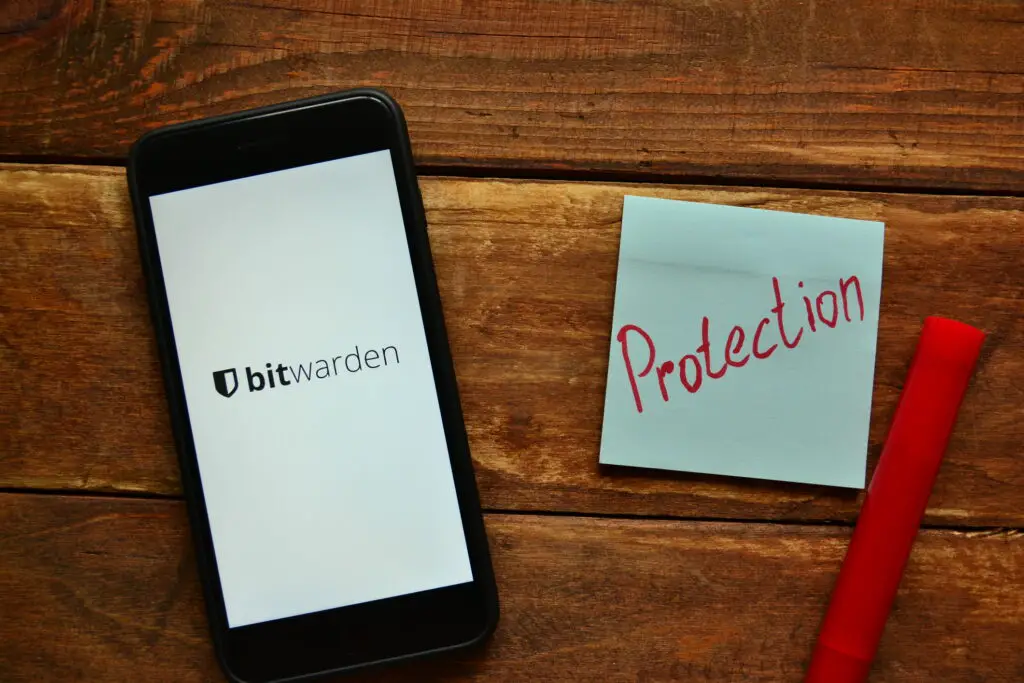With tons of password generators out there, you're probably wondering if the Bitwarden password generator is any better than the rest before jumping to use it.
The Bitwarden password generator is a powerful tool for creating secure passwords, passphrases, and usernames. By adjusting the settings and adopting best practices, users can create stronger login credentials than many other generators. Users can leverage the tool either on the Bitwarden website or directly in the password vault.
Let's see why you can rely on this tool for fortifying your digital life.

Why You Should Trust About Bitwarden Password Generator
Bitwarden's password generator solves two big problems: it's both highly secure and user-friendly. You can either rely on your own, probably predictable, passwords or take your chances with keyboard mashing.
Neither is ideal.
The Bitwarden password generator removes need to be creative while staring at a blank password entry field. It crafts passwords that are both robust and easy for you to manage.
Your passwords are built to withstand brute-force and dictionary attacks. Way better than your dog's name with a couple of numbers, trust me.
Bitwarden's password generator tool has proven to be an invaluable component of my online security over the last 5+ years using it.
Staying focused on the generator as part of the Bitwarden offering, let's delve deeper into why this tool is particularly important when it comes to the creation of critically sensitive usernames and passwords.
A Detailed Review of Bitwarden's Password Generator
Why do I swear by Bitwarden’s password generator?
Easy To Use Correctly
User-friendly and powerful. That's Bitwarden's password generator in a nutshell. You activate it, slide some bars for length and complexity, and you're set. You get multiple character categories: uppercase, lowercase, numbers, and symbols. This isn't just cool; it's vital for tailoring your password to meet various site requirements. We'll dig deeper into customization later on.
More Than Just Passwords: Username Generation
Did you know Bitwarden can also generate usernames? This adds an extra layer of defense against cyber-attacks. By using random, impersonal data for your usernames, you're less of a target. This feature is a choice, not a must. But in my book, security trumps convenience.
Advanced Features: More Than Just Basic Passwords
Bitwarden's password generator is far from being a one-trick pony. Besides offering basic password generation, the tool also has advanced features, such as generating passphrases.
I've talked about why why you should use a passphrase vs a password: length.
A longer, more phrase-like string of words that is easier to remember than a random password but equally secure. This feature comes in handy when you need a strong but memorable login for sites or services where you can't use a password manager to autofill.
It also offers options to avoid ambiguous characters in your passwords. For example, it can exclude characters like "l" (lowercase L), "1" (one), "I" (uppercase i), which look similar and can be confusing. This is particularly useful for situations where you may need to manually enter the password.

Use The Bitwarden Password Generator Anywhere
The Bitwarden password generator isn't just confined to a web browser; you can use it on multiple platforms. It's available as a browser extension, mobile app, and even as a desktop application.
This kind of availability means you can generate and store passwords on the go, be it on your smartphone or your desktop computer. The syncing feature ensures that any password or username you generate is available across all your devices.
This cross-platform availability makes it convenient and efficient, allowing you to maintain your digital security posture regardless of what device you're using.
How Secure Is Bitwarden's Password Generator?
The big question: can you trust it? The answer is a resounding yes.
What sets Bitwarden apart is its open-source nature. You can dig into Bitwarden's source code yourself if you want to find any vulnerabilities.
Part of the strength of open-source software lies in the principle that "given enough eyeballs, all bugs are shallow." In simple terms, this means that the more people who can see and test a set of code, the more likely any flaws will be caught and fixed quickly.
Over and above its open-source nature, Bitwarden goes the extra mile by inviting third-party audits. Internally, Bitwarden conducts rigorous testing to identify any possible weak points and address them proactively. It also invites cybersecurity analysts from outside the company to conduct thorough audits. These external audits provide an additional layer of reassurance as independent experts, unbiased by internal perspectives, scrutinize the generator.
Best Practices of Using Bitwarden Password Generator
The length of the password is one setting you can control. While Bitwarden defaults to producing 14 character passwords, you have the option to increase this length to increase security. In fact, as a best practice, I recommend setting the password length to at least 20 characters long, as long as the site or app you're generating the password for can handle this length.
You can also choose what types of characters your password will contain. You can select any combination of uppercase letters, lowercase letters, numbers, and special characters. I always use all of these character types to create the most secure password possible.
Pro Tip: Sometimes I'll add or update the password to include a unicode characters like: è ö Φ ...though some online accounts will fail when trying to use these.
Another best practice is to generate your password record first before creating an account on a site. This will not only store your password safely, but will also allow you to verify that the generated password is compatible with the specific website's or application's password policies.
In addition to these, here are three best practices to adopt:
Regularly change your passwords. This increases the security lifespan of your accounts, especially those that contain sensitive information.
Refrain from using the same password for multiple accounts. Each account should have a unique password to ensure that if one account is compromised, the others remain secure.
Avail of Bitwarden's password generator for not just passwords, but also security answers, PINs, or any piece of identifiable information. Utilizing the generator for these reduces the chances of personal information being used as a security breach.
Bottom line? Bitwarden offers you control over your digital security. Follow these best practices, and you’re good to go.
Other Questions You Might Have
Is the Bitwarden Password Generator free to use?
Yes, Bitwarden offers a free password generator on their website, and the in-app password generator is also available in both the free and premium versions of the Bitwarden password manager.
How does Bitwarden store the generated passwords?
Passwords generated within the Bitwarden app are stored using end-to-end encryption and are only decrypted on your local device. Passwords generated on the website are not stored unless you choose to save them in your Bitwarden vault.
Can I use Bitwarden Password Generator on mobile devices?
Yes, the Bitwarden app for Android and iOS includes the password generator, and you can also access the web-based password generator through your mobile browser.
Do I need an internet connection to use Bitwarden's Password Generator?
An internet connection is not required to use the in-app password generator, but you will need to be online to use the web-based generator on Bitwarden's website.
Can I generate passphrases with Bitwarden's Password Generator?
Yes, both the web-based and in-app versions of Bitwarden's Password Generator allow you to generate passphrases in addition to random passwords.